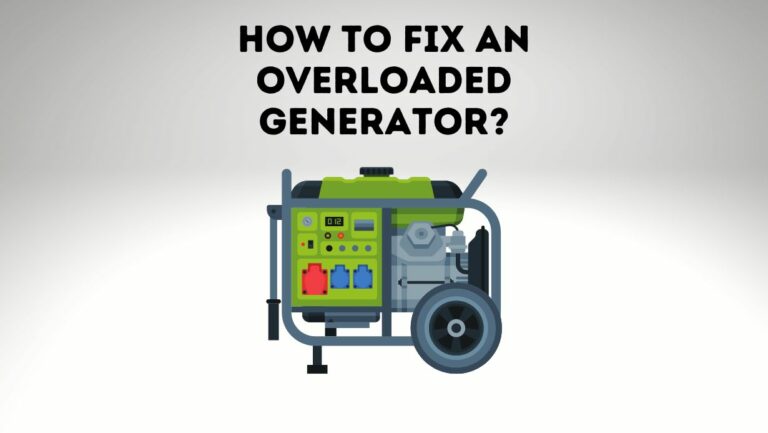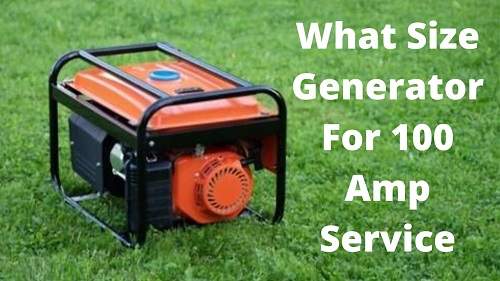
Power outages can happen at any time and for various reasons, from severe weather conditions to unexpected equipment failure. During such situations, having a generator to power essential appliances, such as a refrigerator, can make a significant difference. A generator can keep your food from spoiling and ensure that you have access to fresh water and other necessities.
However, knowing how often to use a generator to power your refrigerator is essential to keep both appliances running smoothly. In this article, we will discuss the factors to consider when selecting a generator to power your refrigerator and the frequency of use to ensure that your appliance is protected from power outages. We will also provide maintenance tips, safety guidelines, and recommendations for selecting the right type of generator for your needs.
Factors to Consider: Wattage Requirements and Generator Size
Before using a generator to power your refrigerator, it’s important to determine the wattage requirements of your refrigerator. This information is usually found in the owner’s manual or on a label inside the refrigerator. Once you know the wattage requirements, you can calculate the minimum generator size needed to power your refrigerator.

To calculate the minimum generator size needed, you’ll need to know the starting wattage and running wattage of your refrigerator. The starting wattage is the amount of power needed to start the refrigerator compressor, while the running wattage is the amount of power needed to keep the refrigerator running.
The starting wattage is about three times the running wattage, so it’s important to factor this into your calculation. For example, if your refrigerator requires 600 running watts, you’ll need a generator with a minimum of 1800 starting watts.
It’s also important to select the right type of generator for your needs. There are two main types of generators: portable and standby. Portable generators are smaller and less expensive and are typically used for short-term power outages. Standby generators are larger and more expensive and are designed to provide power for extended periods of time.
When selecting a generator, consider how often you’ll be using it and for how long. If you only need to power your refrigerator for a few hours during a power outage, a portable generator may be sufficient. However, if you live in an area prone to frequent or extended power outages, a standby generator may be a better investment.
How Often Should You Use a Generator to Power Your Refrigerator?
Using a generator to power your refrigerator during power outages is important to keep your food from spoiling. However, it’s crucial to use it wisely to extend its lifespan and prevent overuse. In this section, we’ll discuss how often you should use a generator to power your refrigerator, how long you can safely operate it, and tips to extend its life.
Frequency of Use
The frequency of generator use depends on how long your power outages usually last. For frequent or prolonged outages, you may need to use the generator more often, whereas rare or short-lived outages may require less usage. Typically, it’s recommended to use the generator to power your refrigerator for no longer than four hours at a time to avoid overheating and to allow it to cool down between uses.
How Long You Can Safely Operate a Generator
The length of time you can safely operate a generator to power your refrigerator depends on the generator’s wattage and fuel capacity. A generator with a higher wattage and larger fuel tank can run longer, whereas a smaller generator needs to be refueled more frequently. It’s essential to follow the manufacturer’s guidelines and avoid running the generator at full capacity for extended periods to prevent overheating and reduce its lifespan.
Tips to Extend the Life of Your Generator
Regular maintenance is essential to keep your generator in good condition and extend its lifespan. Changing the oil, replacing the filters, and cleaning the generator are a few essential tasks to perform periodically. Also, avoid overloading the generator and using it for non-essential devices. It’s also recommended to store the generator in a cool, dry place when not in use and avoid exposing it to extreme weather conditions.
Using Your Generator Safely to Power Your Refrigerator
It’s crucial to use your generator in a well-ventilated area to prevent carbon monoxide buildup. Carbon monoxide is a colorless, odorless gas that can cause severe illness or death. Always use a carbon monoxide detector to monitor the air quality and avoid placing the generator in closed spaces such as garages, basements, or inside homes. Follow the manufacturer’s instructions, use heavy-duty extension cords, and avoid touching the generator when it’s hot or wet.
Potential Risks of Carbon Monoxide Poisoning
Carbon monoxide poisoning is one of the significant risks of using a generator to power your refrigerator. Symptoms of carbon monoxide poisoning include headache, nausea, dizziness, and shortness of breath, which can lead to more severe health issues or death. To avoid carbon monoxide poisoning, it’s essential to use your generator safely and follow safety guidelines.
FAQs About Using a Generator to Power Your Refrigerator
How big of a generator do I need to run a refrigerator?
The size of the generator you need to power your refrigerator depends on its watt consumption. Refrigerators and freezers use between 100 and 800 amps per hour, so a generator that can deliver at least 2000 starting watts will be sufficient to run both the refrigerator and the freezer without any problems.
Is it safe to run a refrigerator on a generator?
Yes, it’s safe to run a refrigerator on a generator as long as the generator’s wattage is higher than the refrigerator’s watt consumption. However, it’s crucial to follow safety guidelines and avoid carbon monoxide poisoning by using the generator in a well-ventilated area and not placing it in closed spaces.
How long can I run my generator continuously?
Manufacturers typically recommend that your generator run continuously for no more than 500 hours maximum. However, it’s essential to follow the manufacturer’s instructions and perform regular maintenance to ensure its longevity.
How often should you run a generator for a freezer?
The frequency of generator use for a freezer depends on various factors, such as the size of the freezer, the temperature outside, and how often you open the door. A general guideline is to run the generator for an hour to cool your refrigerator for four hours. However, it’s crucial to monitor the temperature regularly and adjust the generator usage accordingly.






